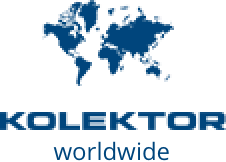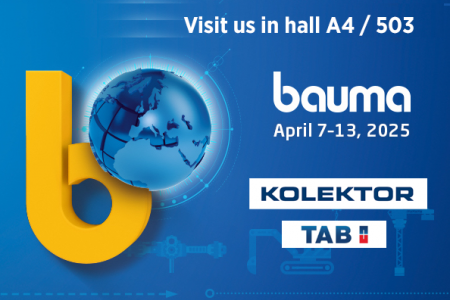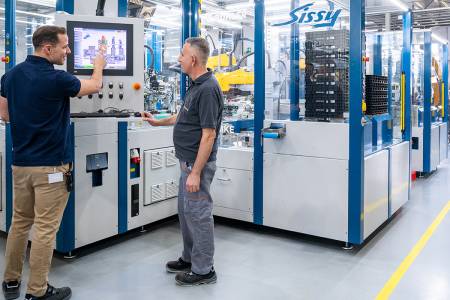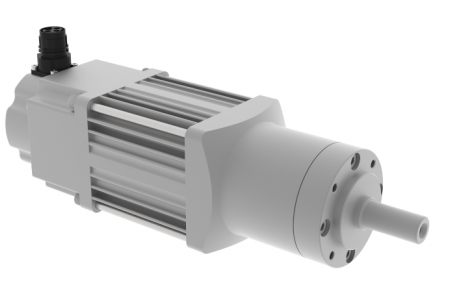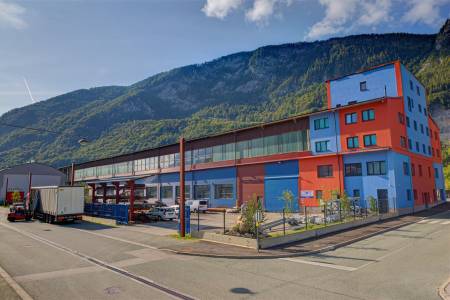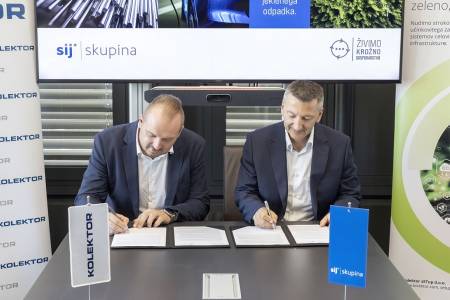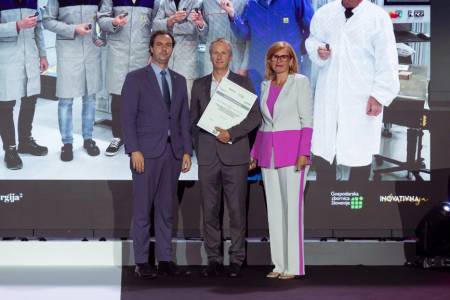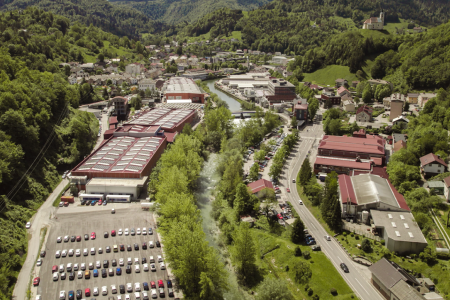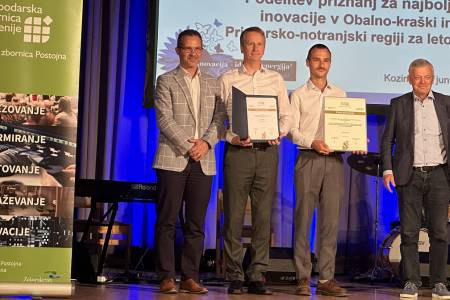We hosted a consortium of Slovenian companies for the digital transformation of the economy
23. 02. 2023
One of Kolektor’s strategic goals is also following the mega trend of digitalization, which is of existential importance for society and companies, as it ensures greater efficiency and flexibility and the introduction of new, more profitable business models. Digitalization is essential also due to one of the key factors of successful business - satisfied, motivated and engaged employees.
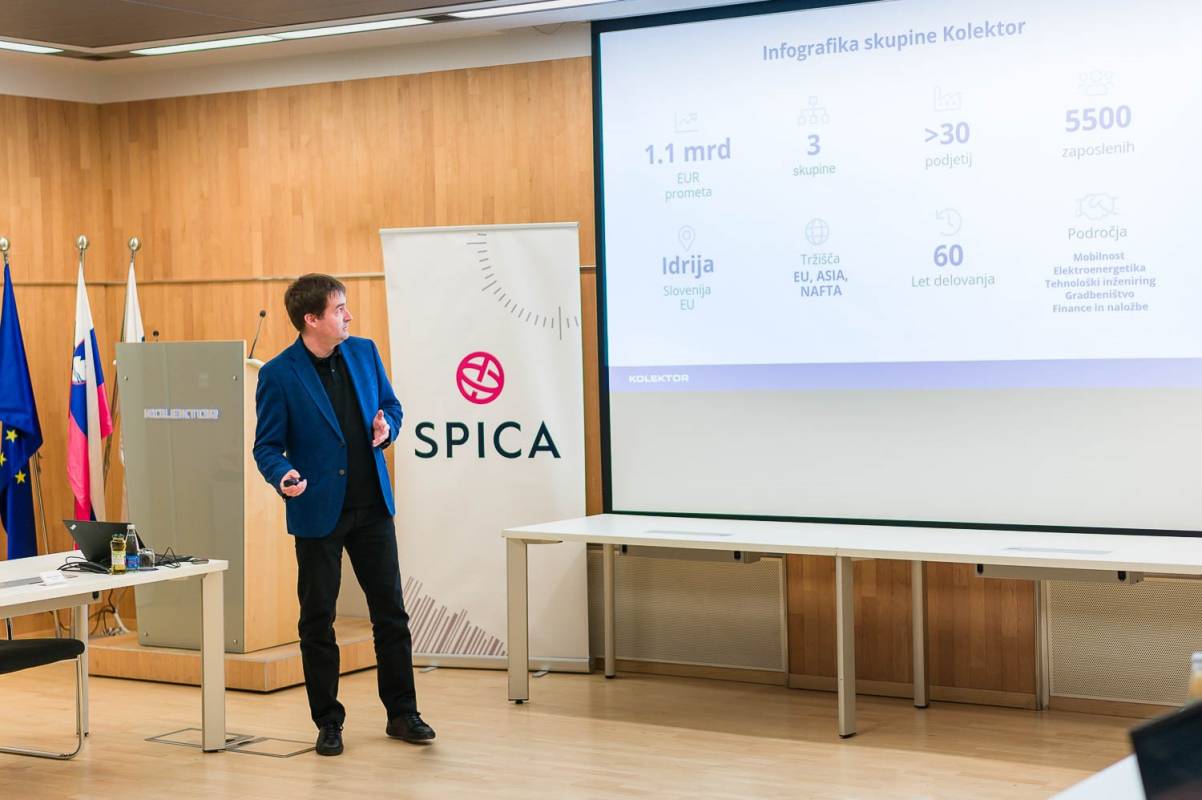
Žiga Kogej, member of the board in Kolektor

A consortium of 10 Slovenian companies, i.e. six Kolektor companies, Domel, Špica International and Audax, obtained co-financing for a project called Digital Leap or JUMP as part of the Digital Transformation of the Economy tender. The total value of the project amounts to over € 6.6 million, the investment is co-financed in the amount of € 2,199,550.
The investment is co-financed by the European Union - NextGenerationEU and is part of the measures of the plan, which is financed from the Recovery and Resilience Plan mechanism. The aim of this plan is to mitigate the economic and social consequences of the covid-19 pandemic and to ensure that the economy and society will be more sustainable, more resilient and better prepared for the challenges and opportunities of the green and digital transition.
Digital leap for connecting data lakes and cross-departmental digital transformation
The purpose of the Digital Leap project is to establish an advanced level of monitoring, management and data exchange, as well as process automation and assistance in decision-making. The central idea is connecting data lakes and cross-departmental digital transformation.
The goals of the project are to reduce the process management costs, improve flow, increase agility and competitiveness of operations, establish a central information backbone and thereby also improve data traceability, and establish a comprehensive change management system. Furthermore, by installing flexible robots and establishing more intelligent data analytics tools, we will optimize and reduce production costs.

What is the role of the consortium partners?
The consortium managed by Kolektor includes six Kolektor companies, two Domel companies, Špica International and Audax. The project started in May this year and will last until March 2024. It is divided into 11 sub-projects.
KOLEKTOR has generated six sub-projects to follow the strategic goal of digital transformation within the JUMP project. Their goals are the integration of existing information systems (SAP R/3, PTC Windchill, Sinapro MES, Špica) using the enabling technology of digital twins and the knowledge graph; automation of business processes that concern two or more existing information systems (currently, such connections are excessively rigid and require constant manual maintenance and interventions during the process); establishment of a system for managing the condition and availability of work equipment; complete digitization of content controlled in the field of quality (FMEA, control plans, SPC measurements, ...) and connection to a unified information system; upgrade of the cognitive assistant Qlector LEAP for automatic planning of work in production and directing the work of production workers and in internal logistics chains (upgrade with functions that enable proactive guidance and automation of organizational production processes); establishment of a comprehensive change management system with the connection of information systems (SAP R/3, Windchill, Polarion, QMS quality control system, smart factory platform and other supporting information systems) and digitization and automation of HR processes.
Automatic connections between key information systems are currently only established between some of them. A lot of data has to be transcribed manually, which can lead to errors or inconsistencies. In this project, all key information systems will be interconnected so that data will be automatically captured by means of the Internet of Things (IoT) and then automatically flow between them. The focus will be on processing data on the current state and, based on their analysis, forecasting events for the next time period (hour, shift, day, week). The analysis will also have a significant impact on better efficiency and greater productivity. In case of unforeseen events (e.g. machine breakdown, lack of material or machine operators, etc.) alternative solutions will be proposed as soon as possible.
DOMEL participates with two sub-projects in the JUMP project, i.e. Advanced use of production data and Management of sales needs. It is important for Domel that all members of the consortium participate in the preparation of the concepts and that the results are available to all companies to be included in their processes. Such guaranteed access to the knowledge base enables a much broader and faster digital transformation than if each company were to tackle it independently.
The sub-project Advanced use of production data focuses on the mass of data generated in the production process, the creation of information and its use in the further improvement of processes, products and the development of new products. The production equipment is equipped with a large number of sensors and other devices for monitoring the production operations, installed semi-finished products, equipment operation, environmental influences and energy consumption for production. A large amount of data can be collected from the various production steps that follow each other during the production of one of the products, which serve for later analyzes (aspect of quality, process stability, productivity...). As part of the sub-project, we will upgrade production equipment and the existing network of sensors to capture an even greater amount of data, connect them to the network and process them in real time with algorithms that would inform operators about production trends and possible causes of changes. Advanced analytics tools would allow the user to create customized reports for display purpose. Among the main goals of the sub-project are: to create a proposal for the architecture and topology of the system and to create pilot systems with the listed requirements and functionalities.
The Management of sales needs sub-project is aimed at digitizing all missing business and production items of work and work resources that have a significant impact on the reliable and cost-effective fulfillment of our customers' needs. The basic focus of the sub-project is to relieve employees of routine or optimization tasks, where advanced digital technology exceeds our capabilities. Thus, we will be more resistant to the risks associated with the lack of personnel in the long term and enable employees to tackle more intellectually demanding challenges in their work. A part of the sub-project is the digitalization of facilities and automation of tasks in material and information processes, such as the digitalization of tools, supply and distribution points, packaging units, returnable packaging, all with the goal that in the near future production supply will be carried out by mobile transport robots. We plan to automate purchasing and sales processes. We use artificial intelligence algorithms to help us create a production forecast and optimize the production plan. In the sub-project, we want to identify all the necessary digital twins that will enable a simulation of the consequences of business decisions on the sustainable operations of the company.
For 30 years, AUDAX has been providing Slovenian industrial companies with the most advanced technologies in the field of technical IT to achieve greater innovation, productivity and competitiveness. In the JUMP project, we are building on our long partnership with Kolektor and Domel with the in-depth implementation of a product life cycle management system and setting up an IT infrastructure for the advanced use of production data. We place great emphasis on establishing connections between the company's otherwise separate information systems. As part of the JUMP project, Audax is developing an upgrade of its own CRM system to support the license rental business model and establish a supportive IT environment for better employee collaboration and work from home.
With the JUMP project, ŠPICA INTERNATIONAL builds on the successful long-term cooperation with Kolektor and Domel both in Slovenia and internationally. We are living in a time of great change, and the innovative approaches that Špica brings to the consortium will place humans at the center of digital transformation through the two DEVOPS and END2END projects. It turned out that SAP - the business information system can perfectly plan machines and material flows, but it has more difficulties in HR planning due to greater uncertainties regarding various absences, competences, legal restrictions, etc. This is where the true value of Špica with its 35 years of experience in the field of working time planning, project time monitoring, records and finally predictive analytics is reflected. With new mobile clients and machine learning (AI), which is currently on the move, we will upgrade our logistics solutions and Time&Space software and thus build and strengthen a bridge to the future for our partners and ourselves.

Back

